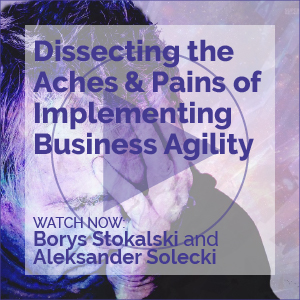Challenging Your Hidden Assumptions
Give Me Some Slack
Release, Milestone, and Iteration Planning
Testing in XP
Projects begin with high hopes and dreams, which gradually fade away as the quality of the software decays. This process cannot be inevitable. Where, how, when, and by whom should testing happen so that we can feel better about a system after a year -- better yet, after a decade -- rather than after a mere month?
In Search of New Mental Models -- Back to the Future
One of the great problems of science is forgetting what we've learned. Most students of the history of science know that after the fall of Rome and the rise of Islam, much of ancient science was lost to Europe until the 13th century, when ancient Greek works reentered the scholarly world. In fact, much of what we know today as the Renaissance was, in fact, a rediscovery of earlier knowledge.
Planned Economies
The Development of BPEL4WS
Managing Software Patches Sensibly
An Architecture Council
The DNA of Risk
With the fiftieth anniversary of Watson and Crick's discovery of the double helix and the completion of the Human Genome Project, some are applying this "genetic" metaphor to other fields. Risk management is a tempting target as the modern era of risk management is around fifty years old as well. Currently, the "discipline" suffers from differences in basic language and definitions, let alone methodologies.
The DNA of Risk
With the fiftieth anniversary of Watson and Crick's discovery of the double helix and the completion of the Human Genome Project, some are applying this "genetic" metaphor to other fields. Risk management is a tempting target as the modern era of risk management is around fifty years old as well. Currently, the "discipline" suffers from differences in basic language and definitions, let alone methodologies.
Geekville -- A Social Architecture for Agility
Injecting Tough Love into Management
Here's a schizophrenic trend we need to understand: On the one hand, there are new collaborative business models that require speed and agility; but on the other, we're still laboring under "consensus management" practices that inhibit our ability to maneuver quickly. Is there a new trend emerging, one that collapses the distance between decisionmaking speed and consensus?
Injecting Tough Love into Management
Here's a schizophrenic trend we need to understand: On the one hand, there are new collaborative business models that require speed and agility; but on the other, we're still laboring under "consensus management" practices that inhibit our ability to maneuver quickly. Is there a new trend emerging, one that collapses the distance between decisionmaking speed and consensus?
Web Services and Service-Oriented Architectures
Taking the Emotion Out of Project Decisions
Most of us have witnessed or been involved in project decisions "gone wrong." This includes systems that go live before they are really ready, budget overruns that drain resources from other projects, and resource allocations that are made in the hopes of "getting the project done."



